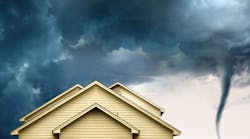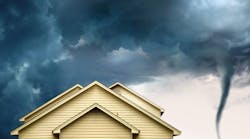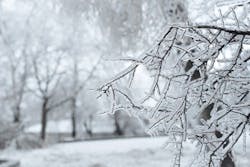Helping Homeowners Prepare for Natural Disasters
The following tips, compiled by Lennox, provide contractors and technicians with advice for homeowners to protect their safety and comfort in the event of a natural disaster, while minimizing home and HVAC system damage.
Ultimately, it’s best to make sure you’re maintaining communication with your customers to schedule routine service checks and ensure systems are operating optimally, especially before or right after a natural disaster. More information can be found here.
Hurricanes
- Remind homeowners to turn off the gas supply to gas furnaces and turn off breakers to AC or heat pumps and indoor air handler or gas furnace.
- Recommend installing a surge protector.
- Protect outdoor equipment from flying debris, such as cutting away branches or removing items that could potentially fall on the unit.
- Consider elevating the HVAC system, or stacking sandbags around the perimeter of the property, to prevent flooding of the home and HVAC system.
- Secure outdoor units by ensuring bolts are secure and tight. Use hurricane straps when possible.
- After the storm, schedule service appointments with customers to inspect systems before homeowners turn them back on in case equipment needs to be repaired or replaced.
Tornadoes
Protect outdoor equipment from flying debris, such as cutting away branches or removing items that could potentially fall on the unit.Wildfires
- Change and upgrade all filters ahead of wildfire season and schedule regular service checks with customers to ensure the air purification system and filtration are properly maintained.
- Remind homeowners to turn blower motors to the “on” setting to continually circulate the air within the home when a wildfire is in the area.
- Monitor indoor air quality for any pollutants.
- If evacuating, remind homeowners to turn off power and gas before leaving their homes.
Earthquakes
- Install vibration isolators under an HVAC unit to absorb movement, along with restraint brackets to the corners of the system for added support.
- After an earthquake, schedule a service appointment with customers to make sure units haven’t shifted, as well as for any cracks and dents to piping and coils. Look for air leaks in the ductwork.
Extreme Temperatures
Schedule routine service appointments at the change of seasons to ensure system is operating effectively for the upcoming season. This could help homeowners save money and future discomfort by preventing system breakdowns caused by the stress of extreme temperatures on HVAC equipment.

